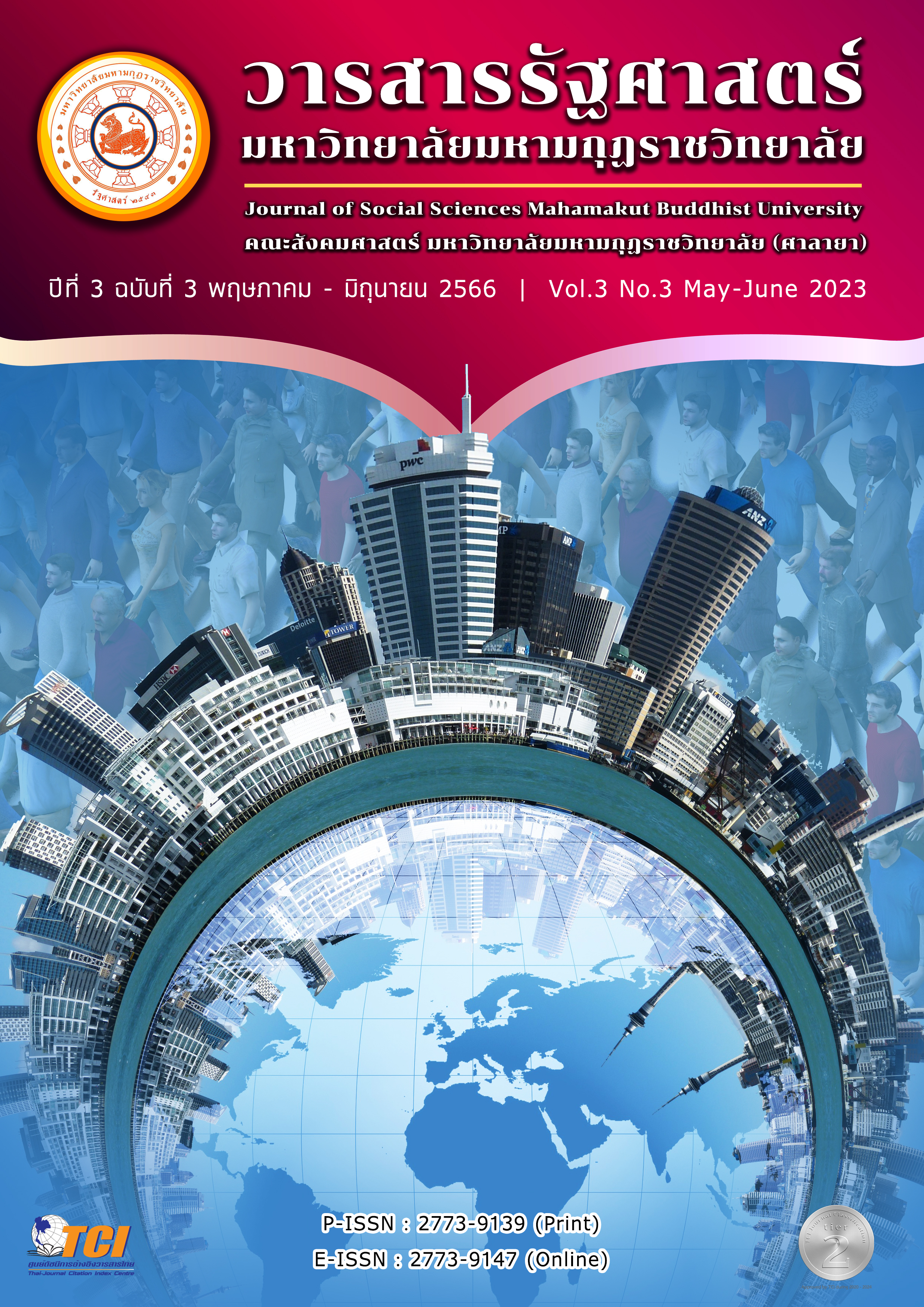MODEL OF CAUSAL FACTORS INFLUENCING BUSINESAS PERFORMANCE OF ENTREPRENEURS GROUP BUSINESS READY MEAL FOOD IN THAILAND
Main Article Content
Abstract
The objective of this research 1) to study factors influencing business performance of ready meal food business operators in Thailand 2) to analyze the relationship of factors influencing business performance of ready meal food business operators in Thailand 3) to develop a model of causal factors influencing the performance of ready meal food business operators in Thailand.This research was a mixed research using a stratified random sampling method. A total of 421 population samples were obtained. Using a random sampling method, 15 people were entrepreneurs and read meal food business experts. The tool used to collect data was a questionnaire by using a structural equation model andlysis technique (Structoral Equation Model: SEM)
Major Findings: Factors influencing the performance of ready meal food business operators in Thailand include knowledge management, dirvers, supply chain management competitiveness and business performance has a direct influence on the performance of the ready meal food business operators in Thailand. Where the index for the consistency level of the structural equation model is appropriate and harmonized with the empirical data (Chi-Square = 52.10, df = 59, p-value = 0.000, RMSEA = 0.000) and the possibility of a causal relationship model of factors influencing the performance of read meal food business operators in Thailand are connected to each other.
Article Details

This work is licensed under a Creative Commons Attribution-NonCommercial-NoDerivatives 4.0 International License.
References
Hsu, I. C. and Wang, Y. S. (2008). A Model of Intra organizational Knowledge Sharing : Development and Initial Test. Journal of Global Information Management, 16(3), 45 - 73.
Kline, R. B. (2011). Principles and Practice of Structural EquationModeling. 3rd ed. New York: The Guilford Press.
Lee, S. (2008). Drivers for the participation of small and medium-sized suppliers in green supply chain initiatives. Supply Chain Management: An International Journal,13(3), 185-198.
Lee, M., Kim, S. T. and Choi, D. (2012). “Green Supply Chain Management and Organizational Performance”, Industrial Management & Data Systems, 112(8), 1148-1180.
Ritthaisong, Y., Johri, L. M. and Speece, M. (2014). “Sources of Sustainable Competitive Advantage: The Case of Rice Milling Firms in Thailand”, British Food Journal, 116(2), 272-291.
Sambasivan, M. and et al. (2009). “Impact of Knowledge Management in Supply Chain Management: A Study in Malaysian Manufacturing”, Knowledge and Process Management, 16(3), 111-123.
Walton, S., Handfield, R. and Melnyk, S. (1998). The Green Supply Chain: Integrating Suppliers into Environmental Management Processes. International Journal of Purchasing and Materials Management, 34(2), 2-11.
Walker, H. and et al. (2008). Drivers and Barriers to Environmental Supply Chain Management Practices: Lessons from the Public and Private Sectors. Journal of Purchasing & Supply Management, 14(1), 69-85.
Zhu, Q. and et al. (2008). Green Supply Chain Management Implications for Closing the Loop. Transportation Research Part E., 4(4), 1-18.


